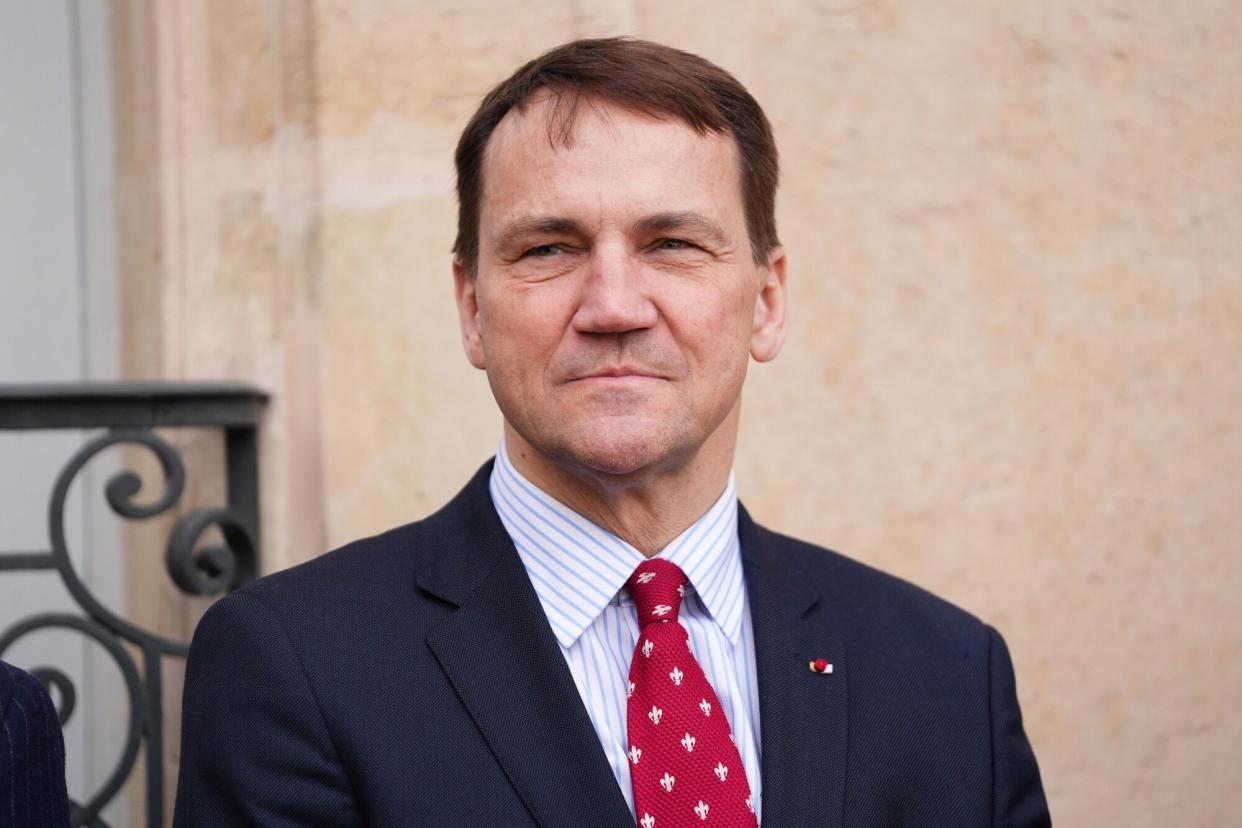Scholz Bets on Closer Poland Ties With French Path Uncertain

(Bloomberg) -- Chancellor Olaf Scholz is upgrading Germany’s relationship with Poland after Prime Minister Donald Tusk returned the nation to the European mainstream last year even as France’s lurch to the right throws ties off balance.
Most Read from Bloomberg
Democrats Weigh Mid-July Vote to Formally Tap Biden as Nominee
US Allies Allege China Is Developing Attack Drones for Russia
China Can End Russia’s War in Ukraine With One Phone Call, Finland Says
S&P 500 Closes Above 5,500 in Record-Breaking Run: Markets Wrap
The rebalancing of bonds between the three European Union nations shows how election cycles that upend the political hierarchies in the bloc are transforming time-tested relationships.
“Germany wants Poland to have a very strong voice in Europe,” Scholz said alongside Tusk on Tuesday after a joint cabinet meeting in Warsaw, the first since 2018. The two will seek to maintain strong ties with France’s Emmanuel Macron irrespective of the result of parliamentary elections, he added.
Germany, France and Poland make up the so-called Weimar Triangle, an alliance forged after the collapse of communist rule in Poland to foster deeper European integration. The format has drifted for most of the last decade, particularly as relations with Poland’s nationalist government soured.
But now that Tusk has made a restoration of the three-way channel a cornerstone of his pro-EU foreign policy after defeating the nationalists last year, France’s orientation may become rudderless.
Macron’s defeat in the first round of parliamentary elections on Sunday at the hands of the far-right National Rally raises the prospect of shared rule with a party that opposes a strengthening of the EU.
While Scholz lauded the Weimar format and pledged to continue it, Tusk lamented the results of the French ballot as a “critical moment” that underscores the rightward shift. Both leaders reinforced their governments’ pro-European orientation, as the Polish leader said his allies must step up competition with populist parties.
“These forces must find smart and convincing answers for the priorities of normal people,” Tusk said, including on issues such as migration, security, economic independence.
In the meantime, Germany is making overtures eastward. Scholz helped delivered a German-Polish “action plan” during his visit and a financial package worth hundreds of millions of euros as he seeks to ease tensions that had dominated under the rule of Poland’s Law & Justice administration.
The two sides also discussed police cooperation and the two nations’ borders, as Polish officials have complained of long lines for those seeking to enter Germany.
‘On All Political Levels’
Scholz and Tusk have improved coordination. Along with their Czech counterpart, they wrote a letter last week to European Commission President Ursula von der Leyen seeking additional financial support to cover the cost of hosting Ukrainians fleeing Russia’s invasion.
Scholz’s package includes an offer for payments to Polish victims of the World War II Nazi occupation — a deeply sensitive issue in Poland — as well as commitments for the joint defense of NATO’s eastern flank. Other items are a commemoration center in Berlin to raise awareness of the suffering of Poles in the Nazi era.
The two leaders committed verbally to war-related payments of about €200 million ($215 million) to victims still living, according to a person familiar with the discussions. The funds will be managed by a Polish non-profit organization.
Scholz acknowledged Germany’s dark legacy in Poland from the Nazi-era, even as he signaled Berlin’s position that reparations have long been resolved by postwar treaties.
The German-Polish thaw came quickly after Tusk’s coalition secured an unexpected majority in the parliamentary ballot in October, ousting a nationalist government that had a long-running quarrel with Brussels. Foreign Minister Radoslaw Sikorski chose Berlin as one of his first trips after taking office in December.
“We hope to restore trust in relations on all political levels,” Sikorski said during a January meeting with his German counterpart, Annalena Baerbock. In April, he made clear that Germany and France were the country’s most significant partners.
It was a dramatic contrast to tense relations with the Polish nationalists led by Jaroslaw Kaczynski, who had made attacks against Germany and the government in Berlin a hallmark of his worldview.
In 2022, the nationalists issued a demand for Germany to pay World War II-era compensation, saying the destruction wrought by the Nazi regime caused damage worth some $1.3 trillion.
The sum being offered by Scholz’s government seeks to respond to a demand by Tusk’s government to present constructive proposals, with funds to be earmarked for living victims of Nazi crimes.
--With assistance from Piotr Bujnicki.
(Updates with verbal agreement on war-related payments in 13th paragraph.)
Most Read from Bloomberg Businessweek
China’s Investment Bankers Join the Communist Party as Morale (and Paychecks) Shrink
The Fried Chicken Sandwich Wars Are More Cutthroat Than Ever Before
For Tesla, a Smaller Drop in Sales Is Something to Celebrate
Japan’s Tiny Kei-Trucks Have a Cult Following in the US, and Some States Are Pushing Back
©2024 Bloomberg L.P.



